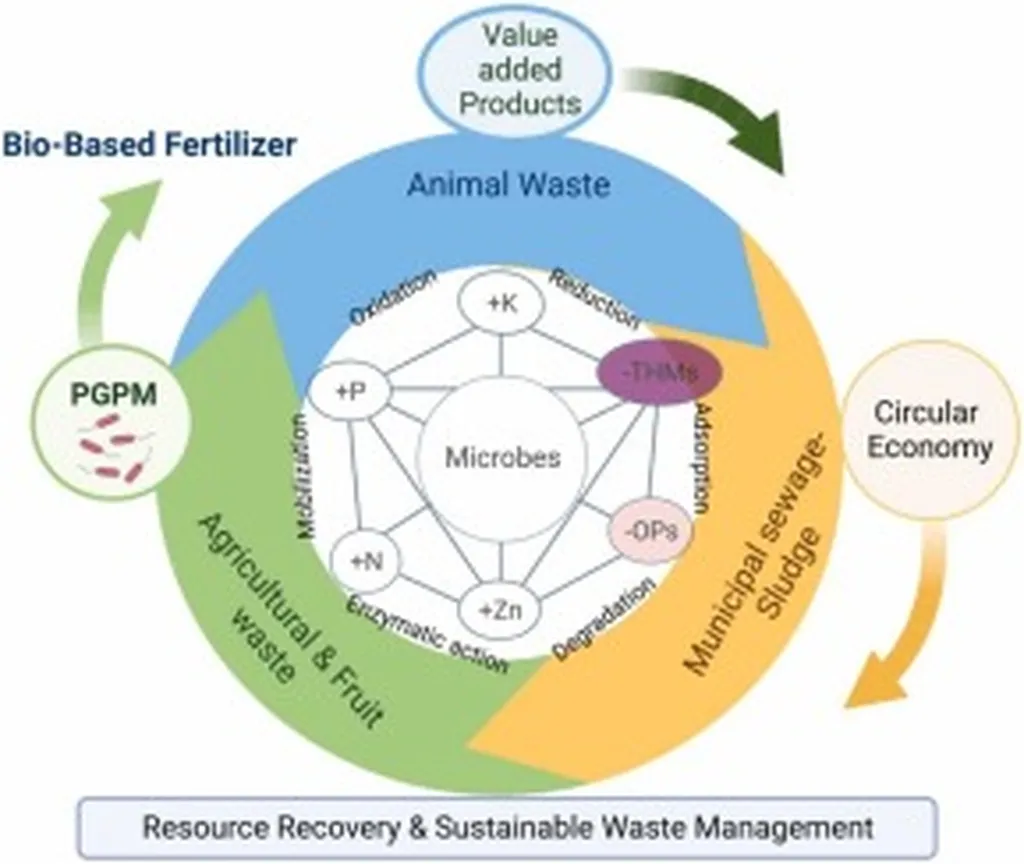In a world grappling with the consequences of a burgeoning population and the environmental toll of conventional agriculture, a beacon of hope emerges from the realm of microbial technology. Researchers have been exploring innovative ways to transform bio-waste into valuable biofertilizers, and a recent study published in *Sustainable Chemistry for Climate Action* sheds light on the promising potential of this approach.
The study, led by Neeraj Kumar from the Mechanical Engineering Department at DPG Institute of Technology and Management in Gurugram, India, delves into the role of microbial activity in the valorisation of bio-waste for biofertilizer production. Bio-wastes, such as agricultural residues, animal manure, and sewage sludge, are rich in essential plant nutrients like phosphorus, nitrogen, and potassium. By harnessing the power of microbes, these nutrients can be recovered and repurposed, mitigating the adverse effects of synthetic fertilizers and promoting a circular economy.
The research highlights the significant improvements in nutrient recovery achieved through vermicomposting of municipal solid waste using microbial consortia like Nitrosomonas, Azotobacter, and Nitrobacter. “We found that the nutrient content in vermicompost can be as high as 2.1–2.6% nitrogen, 1.5–1.7% phosphorus, and 1.4–1.6% potassium,” Kumar explains. “These values are considerably higher than those found in traditional animal manures, making bio-based fertilizers a viable and sustainable alternative.”
The implications for the agriculture sector are substantial. Bio-based fertilizers derived from bio-waste not only boost agricultural productivity but also reduce the environmental impact of non-organic fertilizers. This aligns with the growing global demand for sustainable and eco-friendly agricultural practices. As the world seeks to minimize waste and optimize resource use, the circular economy approach championed by this research offers a promising pathway.
The study underscores the need for further investigation into the practical applications of bio-based fertilizers in the field. “While our findings are promising, we must continue to explore and refine these technologies to ensure their effectiveness and scalability,” Kumar notes. This call to action highlights the importance of ongoing research and development in the field of microbial technology and its applications in agriculture.
The research published in *Sustainable Chemistry for Climate Action* by lead author Neeraj Kumar from the Mechanical Engineering Department at DPG Institute of Technology and Management in Gurugram, India, represents a significant step forward in the quest for sustainable agriculture. By leveraging the power of microbial activity, we can transform bio-waste into valuable biofertilizers, supporting a circular economy and promoting agricultural sustainability. As we continue to explore and refine these technologies, the future of agriculture looks increasingly bright and environmentally friendly.

